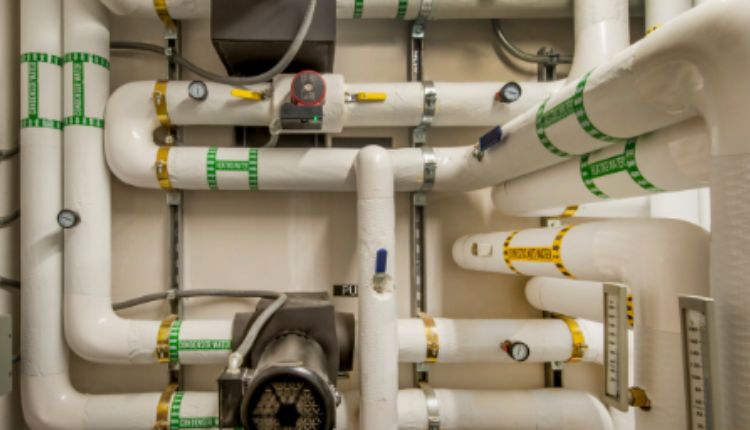Strongsville’s water supply is known for its high mineral content, particularly calcium and magnesium, which makes it “hard.” While this may not be immediately harmful to health, hard water can wreak havoc on your home’s plumbing system over time. The minerals cause buildup in pipes, appliances, and fixtures, leading to costly repairs if left unchecked. Understanding how hard water affects plumbing and exploring solutions is crucial for homeowners. If you notice issues related to hard water, consulting plumbers in Strongsville Ohio is a proactive step in maintaining a healthy plumbing system. We Are Known For Our Aurora CO Trenchless Sewer Repair Services.
Pipe Corrosion: How Mineral Buildup Causes Corrosion and How to Prevent It
One of the most concerning effects of hard water is pipe corrosion. The minerals in hard water, primarily calcium and magnesium, gradually build up on the inside of pipes, leading to several issues:
1. Restricted Water Flow
Mineral deposits reduce the internal diameter of pipes, making it difficult for water to flow freely. This restriction can lead to reduced water pressure and increased strain on your plumbing system, shortening the lifespan of your pipes.
2. Corrosion
The buildup of minerals creates a rough surface inside the pipes, which can react with the metal, especially in older plumbing systems. Over time, this leads to corrosion, weakening the pipes and increasing the risk of leaks and bursts.
3. Discoloration and Rust
As corrosion worsens, it may cause rust to develop in your pipes. This can lead to discoloration of your water, giving it a brownish or reddish tint, which is not only unpleasant but could also indicate a significant issue with your plumbing system.
4. Prevention
To prevent pipe corrosion caused by hard water, homeowners can implement the following solutions:
- Regular Pipe Inspections: Periodic inspections from a professional plumber can help catch early signs of corrosion and mineral buildup.
- Pipe Cleaning: In some cases, chemical descalers can be used to clean pipes and remove mineral deposits before they cause serious damage.
- Water Softening Solutions: Installing a water softening system (discussed later) can greatly reduce mineral buildup and prevent corrosion.
Appliance Wear: The Impact of Hard Water on Dishwashers and Water Heaters, and Maintenance Tips
Hard water doesn’t only affect your pipes; it also puts significant wear and tear on household appliances, particularly dishwashers and water heaters. Over time, the minerals present in hard water can lead to inefficiency, higher energy bills, and a shorter lifespan for these appliances.
1. Dishwashers
In dishwashers, hard water leads to mineral buildup on heating elements, which can reduce the machine’s efficiency in heating water. Additionally, hard water often leaves behind unsightly white spots and streaks on dishes and glassware. To reduce the effects of hard water, regularly clean your dishwasher with a mixture of vinegar and water to help break down mineral deposits. Installing a water-softening system can also prevent future buildup.
2. Water Heaters
Hard water can wreak havoc on water heaters in particular. The minerals settle at the bottom of the tank, reducing its efficiency in heating water and leading to higher energy bills. Over time, this buildup can cause the water heater to overheat and eventually fail. If you want to keep sediment from building up in your water heater, flush it once a year. This process involves draining the water tank and removing any deposits that have settled at the bottom. Additionally, considering a water softener can help minimize future scaling.
Water Softener Systems: Overview of Different Water Softening Solutions and Their Benefits
One of the most effective ways to mitigate the effects of Strongsville’s hard water on your plumbing and appliances is to install a water softener. These systems work by removing the calcium and magnesium ions that cause hard water and replacing them with sodium or potassium ions. Here are the most common types of water-softening systems and their benefits:
1. Salt-Based Ion Exchange Softeners
This is the most widely used type of water softener. The process involves the substitution of sodium or potassium ions for calcium and magnesium ions. Here are its benefits:
- Prevents pipes and appliances from developing scale buildup.
- Improves the efficiency of water heaters and dishwashers.
- Reduces soap scum and makes cleaning easier.
2. Salt-Free Water Conditioners
Instead of removing minerals from the water, salt-free conditioners alter the chemical structure of minerals to prevent them from adhering to pipes and surfaces. These are the benefits:
- No need to add salt or chemicals.
- Maintenance-free and eco-friendly.
- Ideal for people on a low-sodium diet, as it does not add salt to the water.
3. Magnetic or Electronic Descalers
These systems use magnetic or electronic fields to change the behavior of minerals in water, reducing their ability to form scale on pipes and appliances. The following are its benefits:
- Easy installation and low maintenance.
- Helps reduce scale without using salt or chemicals.
- Best suited for homes with mild to moderate hard water.
Conclusion
The hard water in Strongsville poses a significant challenge to homeowners, particularly when it comes to the longevity and efficiency of their plumbing systems and appliances. Mineral buildup can lead to pipe corrosion, appliance wear, and costly repairs if not addressed promptly. Fortunately, preventative measures such as regular pipe inspections, water heater maintenance, and the installation of water softeners can greatly mitigate these effects. Consulting experts in Strongsville plumbing can help you choose the right solution for your home, ensuring a longer-lasting and more efficient plumbing system.


